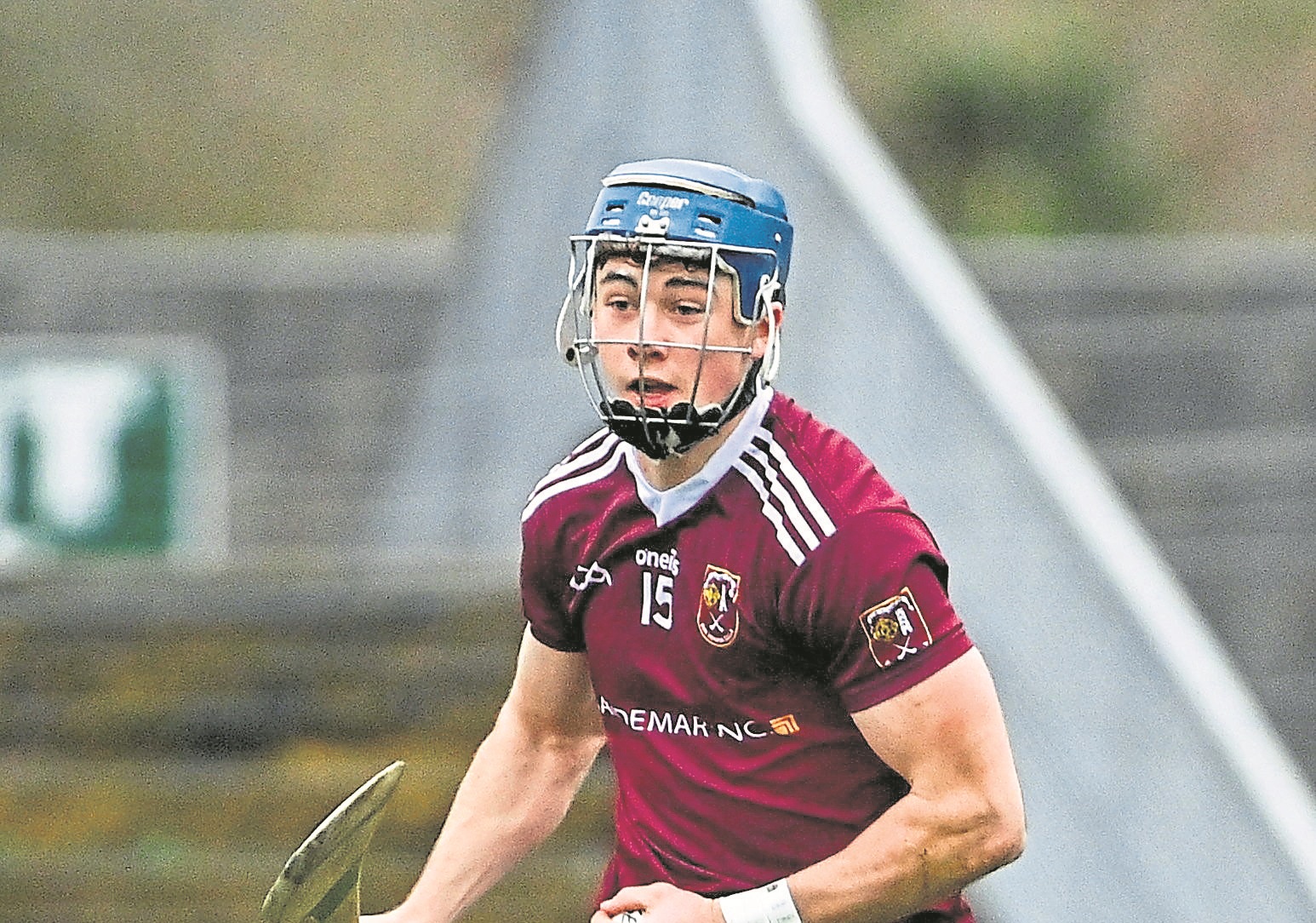I’VE been grumbling a lot about the championship structures in Antrim. The GPA are complaining strongly now about competitions like the McKenna Cup coming back but nobody ever seems to look at the round-robin phases in the club championships.
I understand it’s probably really important for Antrim, and for a lot of counties, that they have those round-robin competitions. It gives teams more matches, and maybe it generates extra revenue for the county since there are more fixtures overall.
I’ve covered a lot of games in Antrim, streaming with Jerome Quinn. We’ve covered a huge number of matches — I’m sure I’ve seen twelve or thirteen championship games this year. And as much as I’d love to say they’ve been exciting, they really haven’t been. There’s been a real flatness, something missing about the championship.
Up until this past weekend, when it finally started to feel like championship season, it just hasn’t been very exciting. Even at the quarter-final stage, things felt a bit flat. The way the group stages are structured, especially when there’s no jeopardy in them, really takes away from the energy.
I definitely think Antrim needs to revamp the championship to bring more excitement into it. It’s been maybe 25 years since we’ve had a winner outside of the top three. It’s been Loughgiel, Cushendall, and Dunloy. More recently, it’s really just Cushendall and Dunloy. So it has become repetitive and uninteresting. And as much as we try to promote the game, the best way to promote club hurling anywhere is to give teams a sniff of success. Give them something to actually play for!
It’s the same story at inter-county level: group stages, group stages, group stages. Then the GPA complains about too many matches and player burnout. And when players go back to their clubs, it’s more group stages. The Intermediate Championship in Antrim has almost become ridiculous. It’s been running for eleven or twelve weeks just to get to the semi-finals, because there are so many teams. There are eleven teams, split into groups of six and five. And because of football, the schedule has been staggered, which means it’s taken about eleven weeks to reach the knockout stage. The only reason it still feels better is because in those groups only the top two progress — there’s jeopardy there. If you don’t win your first games, you’re in real bother.
Even though the standard might be slightly lower, the intensity and excitement are higher. The way Division One is set up, you’ve got four teams in a group and the top three qualify. Win your first game and you’re almost guaranteed to go through. That creates a lot of dead rubbers.
I always think — and maybe people would say it’s because I come from a smaller club — that the romance of the championship comes from knockout hurling. It comes from Cushendall and Dunloy meeting in the first round or the quarter-final, where you know one of the big two will go out. You could end up with Naomh Éanna and Ballycastle in a county semi-final, with the winners going through to the final.
I really feel for Naomh Éanna, because they’re working so hard to develop, but it’s very difficult for them to progress. This year they were unlucky not to get out of their group because it was so strong. But inevitably, they always come up against one of the big teams, and the way the system is set up, it’s just brutal for them. Ballycastle too — such a proud club with a very good hurling team, but realistically, under the current system, they won’t be reaching a county final any time soon.
None of the smaller clubs even want to go into the Senior Championship. Take Carey Faughs, for example. They won the Intermediate, did really well last year, so they moved up into Senior. They played three teams and got annihilated in all three games. They don’t want to be part of that. That’s not to say on a certain day they couldn’t cause a shock, but the reality is brutal. When I was playing with Glenariffe, one year we played a South West Antrim select team in a county quarter-final. We beat them, and all of a sudden we were in a county semi-final — and we should have won it. The hype and momentum around that was unbelievable. I’m not sure the big clubs even understand what that means for a smaller club.
If you had twelve teams and a first-round draw where Carey Faughs could face a similar-quality side, then suddenly they’d have a real chance. Look at St Gall’s: they were a very strong team in Antrim, up and down between Division One, and they made several county semi-finals and county finals. That gave them momentum to grow. People complain that Intermediate teams don’t want to progress, but the truth is it’s so difficult to achieve anything in the Senior Championship. That’s why. It’s like telling a Division Four soccer team they’ll always draw Man City in the first round of the FA Cup — what’s the fun in that? The excitement is in the chance of going on a run, knocking out a big team early, and seeing that sense of jeopardy.
Another issue is that the big clubs can afford to grow into the championship. Cushendall are brilliant at this. They often start slowly and don’t look great in the early rounds, but they get better and better with each game. If they had to play a big knockout tie in the first week of August, they could easily be caught out. A knockout system would bring back that sense of romance, where smaller clubs could actually dream of making a run and causing an upset.
Receive quality journalism wherever you are, on any device. Keep up to date from the comfort of your own home with a digital subscription.
Any time | Any place | Anywhere














